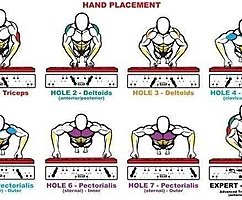To let off steam doesn't help
 Bashny.Net
Bashny.Net
One of the most deep-rooted in our culture of belief, based on representations of psychoanalysis, about the benefits of catharsis: that is, that, if to give vent to anger or to behave aggressively, this will help to get rid of the irritation and literally "cleaned". Beat on a punching bag, yell at your spouse and you will feel relief.
In reality, decades of experimental studies found the opposite: if people give vent to his aggressive emotions, they often get worse, they have increased blood pressure, and they get mad even more.

The probability of a reverse effect where people give vent to anger, particularly high, if the aggression is aimed directly at the other person, and that predicted by the theory of cognitive dissonance. When you are doing something harmful to someone else: put him/her in the awkward position of verbally or beat, begins to act a powerful new factor — the need to justify what you did.
Take the boy, teasing and resentful, together with his fellow seventh graders weaker peer who has not done anything wrong against them. The boy likes the company, but do not want to hurt the weak classmate. He begins to feel a certain dissonance in relation to his actions. "How can such a normal guy like me, he asks, is to do something so cruel with this good and innocent kid?".
To reduce dissonance, he will try to convince themselves that the victim of bullying — not that good, and innocent: "He's such a bore and crybaby. In addition, he would have done the same to me if he had the chance.“ Once the boy makes the first step towards the accusations of the victim, increases the likelihood that it will cost the victim even more cruelly when he gets the chance.Excuse the first cruel act provides the basis for even more aggression. That's why the catharsis hypothesis is wrong.
The first experiment that demonstrated this was a complete surprise for the researcher. Michael Kahn, then a graduate student, wrote a thesis in medical psychology at Harvard, came up with an ingenious experiment, which he was sure would show a positive effect of catharsis.
Playing the role of a medical laboratory assistant, Kahn obtained the data about students on a polygraph (lie detector) and measured their blood pressure, at the same time students reported that it was a medical experiment. During this procedure, Kahn was pretending to be irritated, and made disrespectful towards the students participating in the comments (with reference to their mothers).
The students were angry, and they have dramatically increased blood pressure. In the experimental option the students were given the opportunity to defuse your anger, informing the chief Kahn about his abusive behavior, they believed that Khan will then be in big trouble. In the control version students have not had the opportunity to defuse your anger, complaining.
Cap indulgent Freudian, was surprised at the results obtained: no effect of catharsis was observed. The people who were able to Express their anger against Kanu, were more hostile than those who did not have this option.
In addition, those who "let off steam", further increased the already high blood pressure, and students who failed to defuse his anger, the pressure quickly returned to normal. Trying to find an explanation for these unexpected results, Kang drew attention to the theory of dissonance, which at that time was just beginning to attract attention, and realized that she could be a great explanation of the results.
Because the students thought that they had caused a "gross laboratory" in serious trouble, they needed to justify his act by convincing himself that he deserved it, so they have intensified the anger directed at him, and blood pressure.
Dostoevsky demonstrated how the process works.
Here is what he wrote in the novel "the Brothers Karamazov" on the finished scoundrel, the father, Fyodor Pavlovich: "... he remembered now, by the way, as once before, Asked him again: "why are you such hate?" And, he told me in a fit his clownish impudence: "But for that: he really never done anything to me, but I made him one shamelessly nasty, and just did, immediately and hated him."
Fortunately, dissonance theory also shows us that a good deed can create a "spiral of virtue and compassion," or "virtuous cycle." When people do a good deed, especially if it is spontaneous or accidental, they begin to be warmer to treat someone who has made good.

How to remember a loved onedo you Know how to accept gifts of fate
Their knowledge that they made the effort to help this person, be discordant with the negative feelings they may have towards him. As a result, having somebody good service, they ask themselves: "would I do something good for the bastard? Therefore, it is not such a complete bastard as I had imagined, in fact, is a good person deserving of leniency“.
Several experiments confirmed this prediction.published
(from the book "Mistakes were made (but not by me). Why we justify foolish beliefs, bad decisions and harmful actions," Carol Tavris, Elliot Aronson)
Source: osokina.com.ua/%D0%B2%D1%8B%D0%BF%D1%83%D1%81%D0%BA%D0%B0%D1%82%D1%8C-%D0%BF%D0%B0%D1%80-%D0%BD%D0%B5-%D0%BF%D0%BE%D0%BC%D0%BE%D0%B3%D0%B0%D0%B5%D1%82/
In reality, decades of experimental studies found the opposite: if people give vent to his aggressive emotions, they often get worse, they have increased blood pressure, and they get mad even more.

The probability of a reverse effect where people give vent to anger, particularly high, if the aggression is aimed directly at the other person, and that predicted by the theory of cognitive dissonance. When you are doing something harmful to someone else: put him/her in the awkward position of verbally or beat, begins to act a powerful new factor — the need to justify what you did.
Take the boy, teasing and resentful, together with his fellow seventh graders weaker peer who has not done anything wrong against them. The boy likes the company, but do not want to hurt the weak classmate. He begins to feel a certain dissonance in relation to his actions. "How can such a normal guy like me, he asks, is to do something so cruel with this good and innocent kid?".
To reduce dissonance, he will try to convince themselves that the victim of bullying — not that good, and innocent: "He's such a bore and crybaby. In addition, he would have done the same to me if he had the chance.“ Once the boy makes the first step towards the accusations of the victim, increases the likelihood that it will cost the victim even more cruelly when he gets the chance.Excuse the first cruel act provides the basis for even more aggression. That's why the catharsis hypothesis is wrong.
The first experiment that demonstrated this was a complete surprise for the researcher. Michael Kahn, then a graduate student, wrote a thesis in medical psychology at Harvard, came up with an ingenious experiment, which he was sure would show a positive effect of catharsis.
Playing the role of a medical laboratory assistant, Kahn obtained the data about students on a polygraph (lie detector) and measured their blood pressure, at the same time students reported that it was a medical experiment. During this procedure, Kahn was pretending to be irritated, and made disrespectful towards the students participating in the comments (with reference to their mothers).
The students were angry, and they have dramatically increased blood pressure. In the experimental option the students were given the opportunity to defuse your anger, informing the chief Kahn about his abusive behavior, they believed that Khan will then be in big trouble. In the control version students have not had the opportunity to defuse your anger, complaining.
Cap indulgent Freudian, was surprised at the results obtained: no effect of catharsis was observed. The people who were able to Express their anger against Kanu, were more hostile than those who did not have this option.
In addition, those who "let off steam", further increased the already high blood pressure, and students who failed to defuse his anger, the pressure quickly returned to normal. Trying to find an explanation for these unexpected results, Kang drew attention to the theory of dissonance, which at that time was just beginning to attract attention, and realized that she could be a great explanation of the results.
Because the students thought that they had caused a "gross laboratory" in serious trouble, they needed to justify his act by convincing himself that he deserved it, so they have intensified the anger directed at him, and blood pressure.
Dostoevsky demonstrated how the process works.
Here is what he wrote in the novel "the Brothers Karamazov" on the finished scoundrel, the father, Fyodor Pavlovich: "... he remembered now, by the way, as once before, Asked him again: "why are you such hate?" And, he told me in a fit his clownish impudence: "But for that: he really never done anything to me, but I made him one shamelessly nasty, and just did, immediately and hated him."
Fortunately, dissonance theory also shows us that a good deed can create a "spiral of virtue and compassion," or "virtuous cycle." When people do a good deed, especially if it is spontaneous or accidental, they begin to be warmer to treat someone who has made good.

How to remember a loved onedo you Know how to accept gifts of fate
Their knowledge that they made the effort to help this person, be discordant with the negative feelings they may have towards him. As a result, having somebody good service, they ask themselves: "would I do something good for the bastard? Therefore, it is not such a complete bastard as I had imagined, in fact, is a good person deserving of leniency“.
Several experiments confirmed this prediction.published
(from the book "Mistakes were made (but not by me). Why we justify foolish beliefs, bad decisions and harmful actions," Carol Tavris, Elliot Aronson)
Source: osokina.com.ua/%D0%B2%D1%8B%D0%BF%D1%83%D1%81%D0%BA%D0%B0%D1%82%D1%8C-%D0%BF%D0%B0%D1%80-%D0%BD%D0%B5-%D0%BF%D0%BE%D0%BC%D0%BE%D0%B3%D0%B0%D0%B5%D1%82/
Tags
See also
11 BEST ways to release NEGATIVE emotions through the body
Military correspondent of work (4 photos)
40 coolest short facts about advertising
Michael Litvak: Love - like pregnancy. Either it is or it is not
Second offense pole
One person plus God
How to create attentive family
















